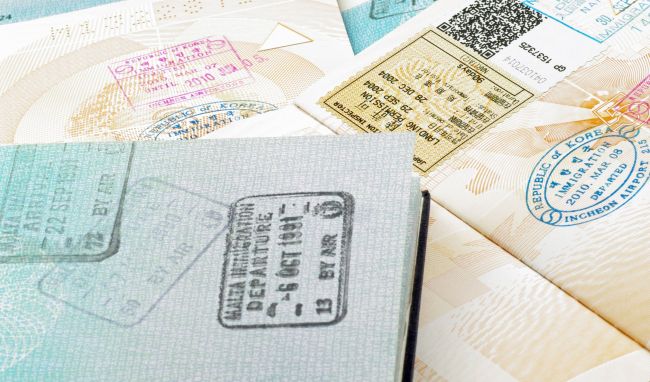
Running a successful small business is never easy. But as a foreigner navigating the complex web of immigration law, that challenge can seem all the more daunting.
Some foreign businesspeople complain of unclear visa rules and requirements and seemingly arbitrary decision-making.
A decision by the local immigration office last month signaled the end of the 3-year-old clothing business of one French citizen.
“They asked me to sign this approval thing and I said no. I refused. I said, ‘Can I have a copy?’ They gave me a copy and … (on it was) written the date by which I have to be out of the country,” said the woman, who wished to remain anonymous.
She had been rejected in her application for a D-9 Trade Management visa, having sought to transfer from her previous D-8 Corporate Investment visa. She said she was told her business had been refused because it failed to generate sales of at least 20 million won in the previous year.
Her difficulties had begun in March when she was told to incorporate and invest 300 million won to keep her D-8 visa, which she had renewed every six months since her initial investment of 50 million won in 2010. Unable to meet the investment requirements, she concluded with legal help that switching to a D-9 would be the best option.
Apart from being told to leave the country and cease her business, she said that a persistent lack of clarity about visa regulations had been a major source of frustration.
“I have no document saying my company, as a private company has to reach over 20 million won, or 60 million won,” she said.
“There is no document for me to understand. And the kind of business I am in, you don’t open a business tomorrow and reach the top. You have to build, because the type of business I am in is word of mouth.”
When contacted by The Korea Herald, a representative on the immigration helpline was unable to confirm if there were specific profit requirements for fledging businesses in the same situation. The officer said the woman or others in her circumstances would have to visit the immigration office to have their cases evaluated in detail.
Other foreign businesspeople, too, complain of a lack of transparency in the visa rules governing foreign businesses. Benjamin Joinau, the operator of two French restaurants in Seoul, said that his legal status remained precarious even after living and running a business in Korea for 19 and 13 years, respectively.
“My personal situation is that I have a visa for two years, usually. And they check my situation every two years to see if I paid, or if my company paid, all the taxes and if everything is regular. My situation after almost 20 years in Korea depends on all these elements which are not very clear, which means that I don’t know exactly what they really are looking at every two years,” said Joinau.
Such ambiguities become particularly apparent when it comes to processes such as hiring foreign staff, he said.
“We never have access to any kind of written text, written law or anything, even if it’s internal new directions in the immigration office, which could tell us. The website gives you documents which are not the proper documents. When you arrive it is always different. It is always left to the arbitrary decision of the officer.”
While acknowledging that options exist for foreigners to gain permanent residency, he claimed the requirements for such visas were out of reach of most foreign business owners and that he knew only one such person among his associates.
“I could expect like (in) Japan, Hong Kong and other countries that, after 20 years in Korea, I may have residency status allowing me to, for example, retire. What if I am 60-something, I retire, but I don’t have a visa because I don’t have a company anymore? Am I obliged to marry a Korean girl at 65 to have a visa, or am I obliged to leave the country where I have lived for 40 years?”
By John Power (john.power@heraldcorp.com)